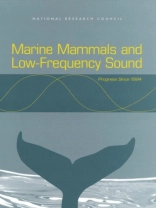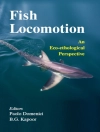Sound has become a major tool for studying the ocean. Although the ocean is relatively opaque to light, it is relatively transparent to sound. Sound having frequencies below 1, 000 Hertz (Hz) is often defined as low-frequency sound. The speed of sound is proportional to the temperature of the water through which it passes. Therefore, sound speed can be used to infer the average temperature of the water volume through which sound waves have passed. The relationship between water temperature and the speed of sound is the basis for the Acoustic Thermometry of Ocean Climate (ATOC) experiment. The ATOC experiment is designed to monitor the travel time of sound between sources off the coasts of Hawaii and California and several receivers around the Pacific Ocean in order to detect trends in ocean temperature and for other research and monitoring purposes.Some whales, seals, and fish use low-frequency sound to communicate and to sense their environments. For example, baleen whales and some toothed whales are known to use and respond to low-frequency sound emitted by other individuals of their species. Sharks are not known to produce low-frequency sound but are attracted to pulsed low-frequency sounds. Therefore, it is possible that human-generated low-frequency sound could interfere with the natural behavior of whales, sharks, and some other marine animals.Marine Mammals and Low-Frequency Sound is an updated review of the National Research Council 1994 report Low-Frequency Sound and Marine Mammals: Current Knowledge and Research Needs, based on data obtained from the MMRP and results of any other relevant research, including ONR’s research program in low-frequency sound and marine mammals. This report compares new data with the research needs specified in the 1994 NRC report, focusing on the strengths and weaknesses of the data for answering important outstanding questions about marine mammal responses to low-frequency sound and identifies areas where gaps in our knowledge continue to exist.
Committee to Review Results of ATOC’s Marine Mammal Research Program & National Research Council
Marine Mammals and Low-Frequency Sound [PDF ebook]
Progress Since 1994
Marine Mammals and Low-Frequency Sound [PDF ebook]
Progress Since 1994
Achetez cet ebook et obtenez-en 1 de plus GRATUITEMENT !
Langue Anglais ● Format PDF ● Pages 158 ● ISBN 9780309515337 ● Maison d’édition National Academies Press ● Publié 2000 ● Téléchargeable 3 fois ● Devise EUR ● ID 7146174 ● Protection contre la copie Adobe DRM
Nécessite un lecteur de livre électronique compatible DRM












